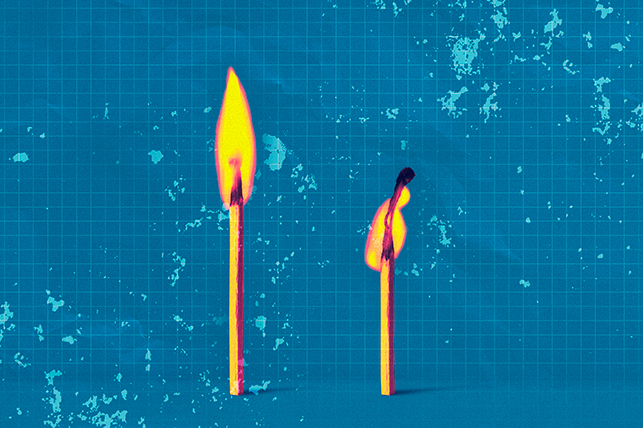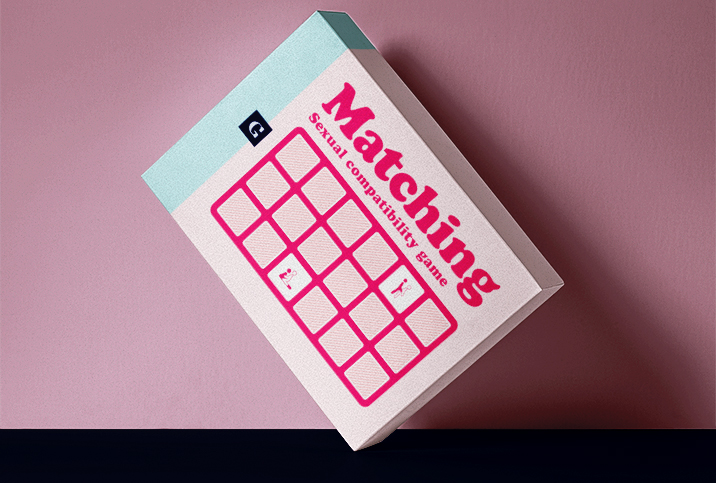What to Do When You Want Sex More (or Less) Than Your Partner

If together long enough, every couple encounters times in their relationship when they have differing interests in sex. These discrepancies may be short term, caused by temporary stress, or they could last for years. Defaulting to one person's preference—rarely having sex or having a partner perform out of obligation—is generally an unsustainable solution for a healthy relationship.
"With honesty, open communication and a true desire to compromise, a couple may be able to meet each other's needs and forgo having to fake it," said Sam Holmes, a relationship coach in London and editor of Feel and Thrive, a website focused on relationships and personal development.
"Working through these issues will form the foundation of trust and vulnerability needed to negotiate sexual differences," he added. "This will also create the right conditions for totally immersive and deeply satisfying sexual encounters to occur."
Normalize different desires
As individuals, we all have different needs for sexual expression throughout our lifetimes. However, as a couple, the "ebbs" can sometimes feel problematic. (The "flows," too.)
"You're not going to be hungry at the same time or tired at the same time, so why would you expect that you'll always want to have sex at the same time?" said Kate Balestrieri, Psy.D., a sex therapist and founder of Modern Intimacy, a counseling service with offices in five states. "Additionally, there are some important differences to understand about the way people experience desire. Some folks have more spontaneous desire, and others have more responsive desire."
Spontaneous desire is described in the lyrics from the song "7 Rings," by Ariana Grande: "I see it. I like it. I want it." It's what we are shown in movies and romance books, the kind of passion that lights fast and burns hot.
Responsive desire describes when you need a little jump-start to get into the mood. You think you're not interested—maybe you'd rather read tonight—but your partner's lingering goodnight kiss and gentle caress start building a feeling more interesting than your book.
Responsive desire is not the same as low libido. It is important to understand that a lack of spontaneous desire doesn't mean you or your partner have a sexual problem.
Call in the cavalry
"The next thing to talk about is what's going on in your lives," Balestrieri advised. "Do you both feel supported as individuals? Often, when couples have been together for a while, there's an implicit default in the relationship about who takes care of what at home. For folks in a heterosexual relationship, it can often disproportionately and unconsciously fall on the shoulders of the female to manage most of the domestic labor and the mental load of the household and relationships.
"The male can feel frustrated, unsure why his partner doesn't find him interesting anymore. He has all this bandwidth to feel sexual," Balestrieri added, holding her hands out wide, "while she's drowning in her responsibilities. 'Schedule sex twice a week?' Sure, let me pencil that in with all the other stuff."
Often, though, it is both partners who feel overwhelmed with the responsibilities of life: work, children, aging parents, household responsibilities, health issues and more. There's always something that needs attention.
A couple whose responsibilities are affecting their sex life (and likely their relationship in general) needs to have a heart-to-heart to discover ways to best support each other. Maybe they can hire someone to clean the house, ask relatives to help with childcare, get takeout every Friday night or allow each other time each weekend to do what they want to recharge.
Could there be a medical or health issue?
It is important to acknowledge how huge a role your overall health plays in sexual desire. There will be times of utter exhaustion when you couldn't feel less interested. For women, there are monthly hormonal changes that influence sex drive, along with the hormonal shifts that go with pregnancy, breastfeeding and menopause.
Medical conditions such as depression, high blood pressure, polycystic ovary syndrome (PCOS), chronic pain and hypothyroidism can also affect libido. Some prescription medications can affect sex drive, too.
Talk to your doctor if you feel your health is creating problems in the bedroom.
Eroticism needs air and creativity
Long-term relationships get bogged down in the practical needs of everyday living. Sometimes a little novelty can help a couple see each other with fresh eyes. This novelty can be something you do together—a weekend away or a night out dancing—or separately.
"Eroticism needs air. It requires space," Balestrieri noted. "Invest in who you are as an individual. Enriching yourself gives you a new energy to bring back into your relationship. There's now a little texture, a little sizzle, an opportunity to be intrigued and curious about your partner. When folks have the time and space to do this, they often feel a renewed sense of zest, which can increase the capacity for desire."
If you find there's still a desire discrepancy, it might simply be that you and your partner have an organic difference in libido.
"When couples redefine what sex can include, there are so many more possibilities," she explained. "Often, we think about penetration as the benchmark of sex, but that's just one kind of sex."
Sensual and satisfying nonpenetrative sex is helpful at other times, like when a partner has erectile dysfunction (ED), vaginismus or has recently given birth.
"When we expand our definition of sexuality to include forms of outercourse, oral sex, anal play and nipple play, we include the rest of the landscape that is our body for all this somatic and sensory pleasure," Balestrieri continued. "I mean, people can have so many different kinds of orgasms. Our erogenous zones are hotbeds of pleasurable sensation. When we move the experience of an orgasm or the demand for penetration out of the goal line, there's a smorgasbord of opportunities available for people to play and that can open up access to more desire."


















